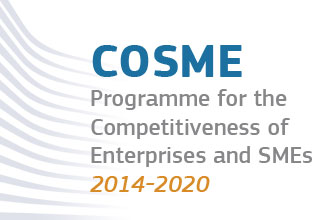 newsitems
newsitems  Netherlands' 2017 Election: Dutch People slam "Gro-Ko", and Vote mainly at the Right
Netherlands' 2017 Election: Dutch People slam "Gro-Ko", and Vote mainly at the Right
Netherlands' 2017 Election: Dutch People slam "Gro-Ko", and Vote mainly at the Right
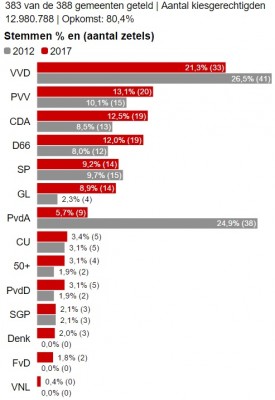
*Strasbourg/Angelo Marcopolo/- Despite a Last-Minute "Lifting" offered by Turkey's Mediatic Provocation to the Outgoing Prime Minister Rutte, as various, German a.o. Medias note, nevertheless, Dutch People clearly Slamed the Out-Going "Gro-Ko" ("Big Coalition"), entre Center-Right Liberals and Socialists, Voting mainly for several other Parties at the Right Side of the Political Spectrum, while the Left side looks Crashed, (with the sole Exception of a Small Leftist Party in the Opposition).
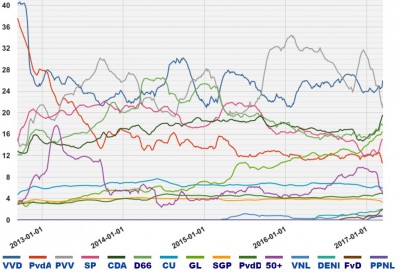
(+Despite a Last Minute Change, as Polls show, probably with that Turkish row)
Indeed, the Biggest Losses, (Both in Votes and in MPs) are Inflicted to the Out-Going Government's abnaturaly co-habitating Parties of Center-Right Liberal VVD (Rutter) and Socialistdemocrat PvdA, which Lost about - 6,5 % and - 20% of Votes, with almost - 10 and - 20 MPs Less than Before, (Compared to the Previous Elections of 2012), respectively, (See also Infra).
Thus, a Former Governing, abnatural "GroKo" Cohabitating Majority, in the Past (2012) of 51,3% of Votes and 78 MPs, Fell Down, Now, (on 2017), to a Minority of Less than 27% of Votes, and Only 41 MPs.
On the Contrary, Both the Rightists of PVV (Wilders, who Become the 2nd Party of the Country), ChristianDemocrats of CDA, Democrats of D66, (who were All in a Right-leaning Opposition, le), Win much More Votes and MPs than before : I.e. About More than +3%, +4%, +4% supplementary Votes, and around +5, +6, +7 more MPs. This Popular Movement towards the Right, Extends even Further, with also the Christian Union of CU, and the Two New Conservative Parties of FvD and VNL, which Gain about +0,4%, +2%, and +0,5% More than before, Winning around +1 and +2 More MPs, respectively, while another Right-wing Party : SGP, remains Stable.
This Rightward Movement represents, Today, approximatively : More than 13%, 12%, 11% Voters, for the Rightists of PVV (Wilders), ChristianDemocrats ofCDA, and Democrats of D66, with about 20, 19 and 19 MPs, respectively. Extending also to about 3,5%, 2,5%, 2% and 0,5% of Votes, and 6, 3, 2 MPs, for Christians of CU, and various Conservatives of SGP, FvD, and VNL, respectively. I.e a Total of More than 46% of Votes, and almost 70 MPs, i.e. a Total of Rightward Opposition Parties approaching now Near to the Dutch Parliament's Half.
=> Obviously, If the Out-going Center-Right Liberal VVD Party (of Rutte), Agreed a Coalition with them, then, Today, the Netherlands could be Governed, Today, with a very Strong Majority at the Right side of the Political Spectrum, Totaling More than 66% of the People's Votes, and More than 90 MPs ! (Compared to Only 75 for the Out-Going, abnatural, former "GroKo").
On the Contrary, the Left Side of the Political Spectrum appears Crashed, with the Co-Governing Socialdemocrats of PvdA Falling Down spectacularly, from about 25% to Only 5,5% of Votes, and from 38 to Only 9 or 8 MPs, while even the Opposition's Socialist Party SP Fell Down from 9,7% to 9% of Votes, and from 15 to 14 MPs only.
The Unique Exception, Leftwards, is the Atypical "Green" Party GL (Opposition), which Grew up to almost 9% of Votes and perhaps 14 MPs.
But a new, ...Turkish Party attempting to gather Migrants (Denk), Fails to Reach 3% of Votes Predicted by Polls, Staying at Only about 2%, (i.e. almost Equal to the New Conservative Party FvD, which gets also almost 2% of the Votes).
However, Two Differend, Special Interests' Parties, such as the BioEthical pro-Animal Rights PvdD, and the pro-Elders 50+, Grew Up to about 3,3% and 3,2% of Votes, with around 6 and 5 MPs each, (which, apparently, seem Closer to the Right than to the Left).
+ Last, but Not Least, anOthert Characteristic Phenomenon in these Dutch Elections of March 2017, is that, in Territorial terms, Appears a Spectacular kind of political Division of the Country, between a more Centrist or Center-Left Part, rather towards the South-Eastern area, (Facing the UK Coasts and Closer to Belgium), and anOther, more at the Right (or even Rightist : PVV + CDA + SGP, etc) Part, located mainly at the North-Eastern areas, (Closer to Denmark and/or Germany).
Main Menu
Inicio Press Deontology/Ethics 2009 Innovation Year EU endorses EuroFora's idea Multi-Lingual FORUM Subscribers/Donors Preguntas más frecuentes Licencia de Elxis Noticias externas Búsqueda avanzada EuroFora supports Seabird newsitems In Brief European Headquarters' MAPs CoE Journalists Protection PlatformBRIEF NEWS
- 00:00 - 02.06.2021
- 00:00 - 18.10.2020
- 00:00 - 19.06.2020
- 00:00 - 18.05.2020
- 00:00 - 20.04.2020
- 00:00 - 02.02.2020
- 00:00 - 09.12.2019
- 00:00 - 27.11.2019
- 00:00 - 16.11.2019
Popular
- Yes, we could have prevented Ferguson riots says World Democracy Forum's Young American NGO to ERFRA
- Spanish People Elect CenterRIGHT Majority with 1st Party and Total of 178 MPs (6 More than the Left)
- Pflimlin's vision
- The European Athletic "Dream Team", after Barcelona 2010 Sport Championship Results
- Source Conseil d'Europe à ERFRA: Debatre Liberté d'Opposants à Loi livrant Mariage+Enfants à Homos ?
- Head of BioEthics InterGroup, MEP Peter Liese : "Embryonic stem cell research reaching its END" !?
- Spain: Jailed Turkish Terror suspect with Explosive,Drones,Chechen accomplices stirs Merah+ Burgas ?
- UN Head Ban Ki Moon at CoE World Democracy Forum : - "Listen to the People !"
Latest News
- EUOmbudsmen Conference 2022: Digital Gaps affect People's Trust threaten EF Project on EU Future ?
- French Election : Black Out on Virus, but Obligation for Fake 'Vaccines" Challenged
- Both French Presidential Candidates point at "Humanism" in crucial times...
- France : Zemmour = Outsider may become Game Changer in Presidential + Parliamentary Elections 2022
- PACE President Cox skips Turkey Worst (Occupation) case compared to Russia (DeMilitarisation) query
Statistics
Visitantes: 56750891Archive
Login Form
Other Menu
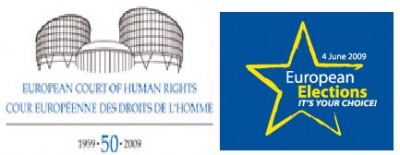
Ten Years of ECHR : 1998 - 2008 show need of Revival in 2009-2010 coinciding with 2009 EU Election
A threefold, coordinated move by new Top French Political actors in the 2009 EU Parliament Elections, expressed in Strasbourg a will to boost Europe's Political dimension close to Citizens' concerns, going from protection of Economy to defence of Human Rights.
The move met an exceptional ECHR's call for a "revival" of Human Rights' protection mechanism', in a Mega-Conference, early 2010.
Obviously focusing on June 2009 Elections to EU Parliament, it involved from the outset the recently nominated "dual" Head of French Governing Party (UMP) Michel BARNIER and Rachida DATI :
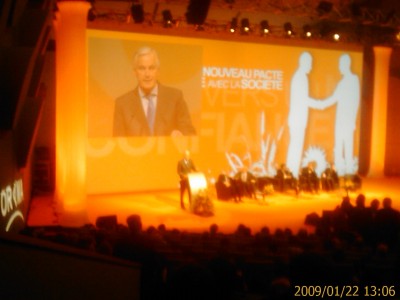
- "As President Sarkozy has clearly said, we (France) are in favor of a Strong, Sovereign and Independent, Political Europe, which protects its Citizens, and not for a large Super-Market, nor for a Europe under influence",
"This goes for everything, including Energy", added to "EuroFora" the experienced former EU Commissioner, Minister of Foreign affairs, currently of Agriculture and Sarkozy's new pick as Leader of the Governing party UMP to EU 2009 Election, Michel BARNIER .
- Human Rights are important because they are at the Heart of the Political Europe that we aspire for : I.e. a Europe able to act and protect its Citizens, stressed also the New French Minister for European affairs, Bruno LE MAIRE, while meeting Strasbourg's Journalists at his first visit to the CoE.
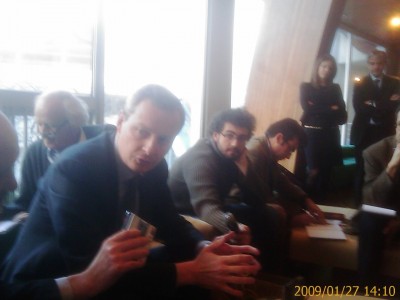
This is one of the main interests for CoE, which is also a natural place for cooperation between EU countries and Russia or Turkey, which was recently helpful at the Middle East crisis, he added.
The move gained momentum with French Minister of Justice, Rachida Dati's main observations at ECHR's 5Oth Anniversary :
- "While we are seeking Europe's Borders and Identity, you (ECHR) remind us also of its Values", Human Rights, Dati noted.
Citizens seek more and more often ECHR's help, and the tempo accelerates, Europa awaits a symbol, while national legal orders are not freezed
And she expressed "support" to ECHR President Jean-Paul Costa's call to satisfy the vital need to revigorate the PanEuropean Court by deciding big changes at a High-Level Conference open to a large audience, a kind of "Etats Generaux" of Human Rights, at the beginning of 2010.
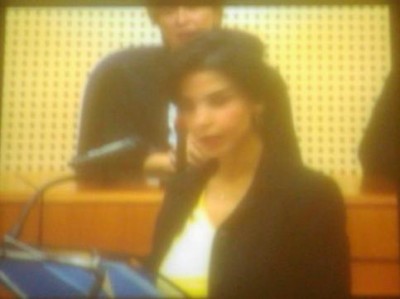
It's not so much the recently growing number of applications for Russia or Ukraine etc, which seems to be Costa's main concern : In fact, the cases declared "admissible" are much fewer...
But rather the persistent violations of Human Rights, sometimes very grave (ie. murders, torture, abritrary deprivation of liberty, oppression of freedom of speech, destructions of homes/properties, etc), despite numerous, repeated condemnations by ECHR. So that CoE's Ministers, due to "supervise execution" of ECHR's judgements, are overloaded.
F.ex. most Media noted that Turkey still remains, even in 2008, the 1st among 47 CoE member States in the number of condemnations by ECHR : 257, compared to 233 for Russia, with a population more than the double..
The problem is that it's not the 1st time at all : During all the last Decade 1998-2008, Turkey was condemned by ECHR much more than any other State, and for particularly grave violations :
- 1.652 condemnations, compared to 605 for Russia, 548 for Poland, 494 for France, 476 for Ukraine, etc.
Italy's second place with 1.394 condemnations is a misleading false appearance : In fact, most of them (999) concern mere "procedural delays" in national courts. Same for France.
On the contrary, Turkey was condemned 180 times for Killings, 192 times for Torture or Inhuman/Degrading treatments, 340 times for arbitrary deprivation of Liberty, 528 times for "Unfair trial", and 169 times for oppression of Freedom of speech, (etc). And the latest, 2008 numbers, indicate no change in this trend, (See supra).
The current Spanish CoE Presidency (November 2008 - May 2009) has made of the implementation of ECHR's judgements its 1st Priority.
ECHR's President, Jean-Paul Costa, stressed in its 2009 Annual Press Conference, CoE Member States' obligation to implement the judgements, according to Article 46 of the European Convention on Human Rights.
Moreover, if CoE's Committee of Ministers delays to ensure implementation, then, the repetition of violations in similar cases provokes a multiplication of complaints tabled to the Court, which overload the mecanism for the protection of Human Rights, denounced Costa.
A series of Debates on "the situation of Human Rights in Europe", focusing on the "need to fight against Impunity" of perpetrators of grave crimes, is currently prepared by CoE's Parliamentary Assembly for the session of June 2009.
The final Timing comes shortly AFTER the EU Elections, but the main Reports should have been adopted before.
Meanwhile, French President Sarkozy and German Chancelor Merkel's recent call "for a Political Europe" in 2009 EU Elections (See earlier "correspondence from Paris, Elysee Palace), seems more and more endorsed also by other EU Countries' Top MEPs :
Thus, f.ex., EU Parliament's 1st vice-President, Greek MEP Mrs Rodi KRATSA, speaking to "EuroFora", agreed that 2009 EU Election would be a "naturally good" opportunity to debate what really interests EU Citizens : "The Future of a Political Europe, able to face the Economic Crisis, with a Culture and identity which attracts the People"
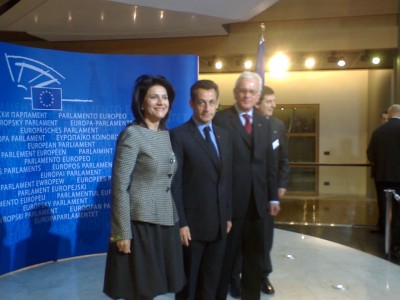
(Photo taken earlier during Sarkozy's 1st visit at EU Parliament, in 2007 : Sarkozy and Merkel's Ideas for a Political Europe inspire also other EU politicians accross the continent)...
Polls
SMF Recent Topics SA
- Record Hospitalisati... (0) por Breadman
- How Many Infected by... (1) por Thunderbird
- Real Cause for Europ... (0) por Breadman
- Interesting Australi... (0) por Aurora
- Plus de mRNA Faux-&q... (0) por Aurora
- EU: Lukashenko as E... (0) por WKalina
- Why NATO in Ukraine,... (0) por Geopol
- Afghanistan's key : ... (0) por Thunderbird
- Anti-Pass Demonstrat... (0) por Aurora
- Veran - Fioraso : Mê... (1) por JohnsonE













